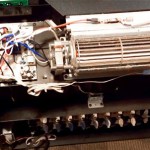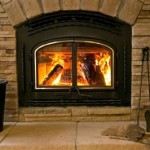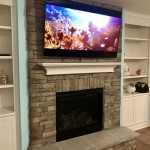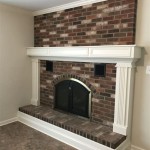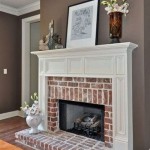Ventless Natural Gas Fireplace Smell: Understanding and Addressing the Issue
Ventless natural gas fireplaces offer an appealing alternative to traditional wood-burning fireplaces, providing warmth and ambiance without the need for a chimney. However, one common concern that arises with these appliances is the potential for a noticeable odor. While designed for efficient combustion and complete burning of fuel, a smell emanating from a ventless natural gas fireplace can indicate various issues, ranging from minor adjustments to more significant problems requiring professional attention. Understanding the potential causes and appropriate responses is crucial for ensuring safe and optimal operation.
The presence of an odor associated with a ventless natural gas fireplace is often perceived as a sign of incomplete combustion, resulting in the release of unburnt hydrocarbons and other byproducts into the room. These byproducts, even in small concentrations, can create an unpleasant smell and, in some cases, pose health risks if ventilation is inadequate. Therefore, any unusual odor should be investigated and addressed promptly to maintain a safe and comfortable indoor environment.
Understanding the Common Causes of Ventless Fireplace Odors
Several factors can contribute to the smell associated with ventless natural gas fireplaces. Identifying the specific cause is the first step in rectifying the problem. These causes can be broadly categorized into issues related to installation, operation, and maintenance.
One frequent cause is the burning off of manufacturing residues and dust that accumulate on the fireplace during shipping and storage. This is particularly common during the initial uses of a new fireplace. The heat generated by the appliance vaporizes these substances, leading to a temporary odor that typically dissipates after a few hours of operation. Ensuring proper ventilation during these initial uses is recommended to minimize the impact of the smell.
Another source of odor can be traced back to the composition of the natural gas itself. While natural gas is primarily methane, it also contains trace amounts of other gases, including sulfur compounds. These sulfur compounds are added deliberately by gas companies as an odorant, typically mercaptan, to allow for the easy detection of gas leaks. If the fireplace is not burning the gas completely efficiently, these odorants can be released into the room, creating a smell reminiscent of rotten eggs or sulfur.
Furthermore, improper installation or adjustments can contribute to incomplete combustion. If the gas pressure is not properly regulated, or if the air-to-fuel ratio is not correctly balanced, the flame may not burn cleanly, leading to the production of unburnt hydrocarbons and other odorous compounds. Issues with the gas valve, burner assembly, or oxygen depletion sensor (ODS) pilot can also contribute to this problem.
Addressing the Odor Issue
The approach to addressing the odor from a ventless natural gas fireplace depends on the suspected cause. If the fireplace is new, operating it for several hours with adequate ventilation may be sufficient to burn off any residual manufacturing materials. Opening windows and doors can help to dissipate any odors that may arise during this initial burn-in period.
If the odor persists after the initial burn-in period, inspecting the fireplace and its components is necessary. The burner assembly should be checked for any obstructions or debris that may be interfering with the proper flow of gas and air. The air inlets should also be free from dust and other particles that could restrict airflow. A soft brush or vacuum cleaner can be used to clean these components, but care should be taken to avoid damaging any sensitive parts.
If the fireplace has an adjustable air shutter, experimenting with different settings may help to improve combustion efficiency. The air shutter controls the amount of air that is mixed with the gas before it is burned. Adjusting the shutter can optimize the air-to-fuel ratio, leading to a cleaner and more complete burn. However, it is important to proceed with caution when adjusting the air shutter, as incorrect settings can worsen the odor problem or even create a dangerous situation. Consulting the manufacturer's instructions or seeking professional assistance is recommended before making any significant adjustments.
When to Seek Professional Assistance
In cases where the odor persists despite troubleshooting efforts, or if there is any suspicion of a gas leak, seeking professional assistance is crucial. A qualified HVAC technician or gas fireplace specialist can diagnose the problem accurately and perform any necessary repairs or adjustments. They can also check the gas pressure, inspect the burner assembly, and ensure that the fireplace is operating safely and efficiently.
Specifically, if the odor is accompanied by symptoms such as headaches, nausea, or dizziness, it is essential to evacuate the premises immediately and contact the gas company or emergency services. These symptoms may indicate carbon monoxide poisoning, which is a serious and potentially life-threatening condition. Carbon monoxide is a colorless and odorless gas that is produced by the incomplete combustion of fuels, including natural gas. While ventless fireplaces are designed to minimize carbon monoxide emissions, malfunctions or improper operation can still result in dangerous levels of the gas.
Regular maintenance, including annual inspections and cleaning, can help to prevent odor problems and ensure the safe and efficient operation of a ventless natural gas fireplace. This maintenance should include checking the burner assembly, cleaning the air inlets, and inspecting the gas connections for leaks. By addressing potential issues proactively, homeowners can enjoy the warmth and ambiance of their ventless fireplaces without the concern of unpleasant odors or safety hazards.

Vent Free Fireplace Odor

Vent Free Fireplace Odor

Ventless Gas Fireplace Maintenance Guide Fireplaces Direct Learning Center

Ventless Gas Fireplace Maintenance Guide Fireplaces Direct Learning Center
:max_bytes(150000):strip_icc()/ventless-gas-fireplaces-4160746-hero-f9d4bdcd9bd446eb84406de306f790ba.jpg?strip=all)
How To Pick Out A Ventless Gas Fireplace

Ventless Gas Fireplace Propane

Why Do My Gas Logs Smell Foster Fuels

Considering A Ventless Gas Fireplace Here S What You Need To Know Bob Vila

ᑕ❶ᑐ Ventless Gas Fireplace Insert Disadvantages Of Use

Why Does My Gas Fireplace Smell Dreifuss Fireplaces
Related Posts

